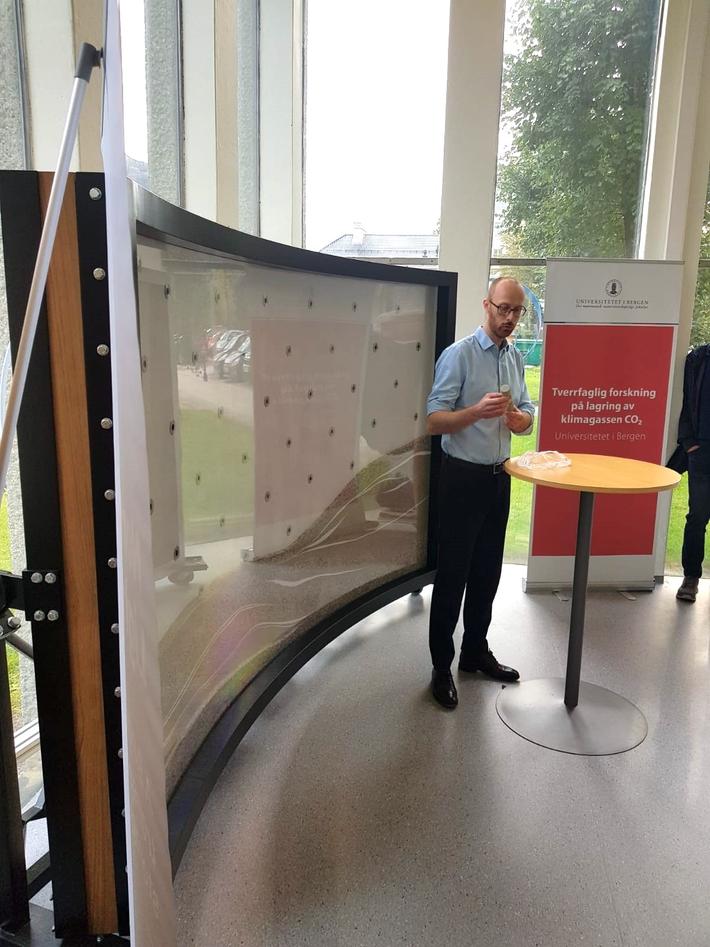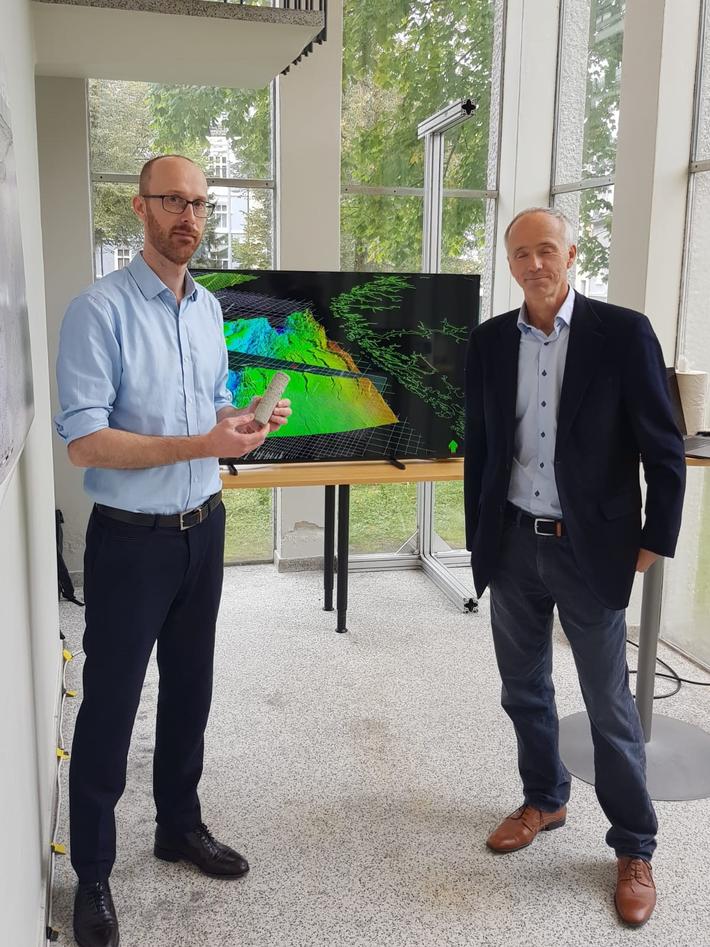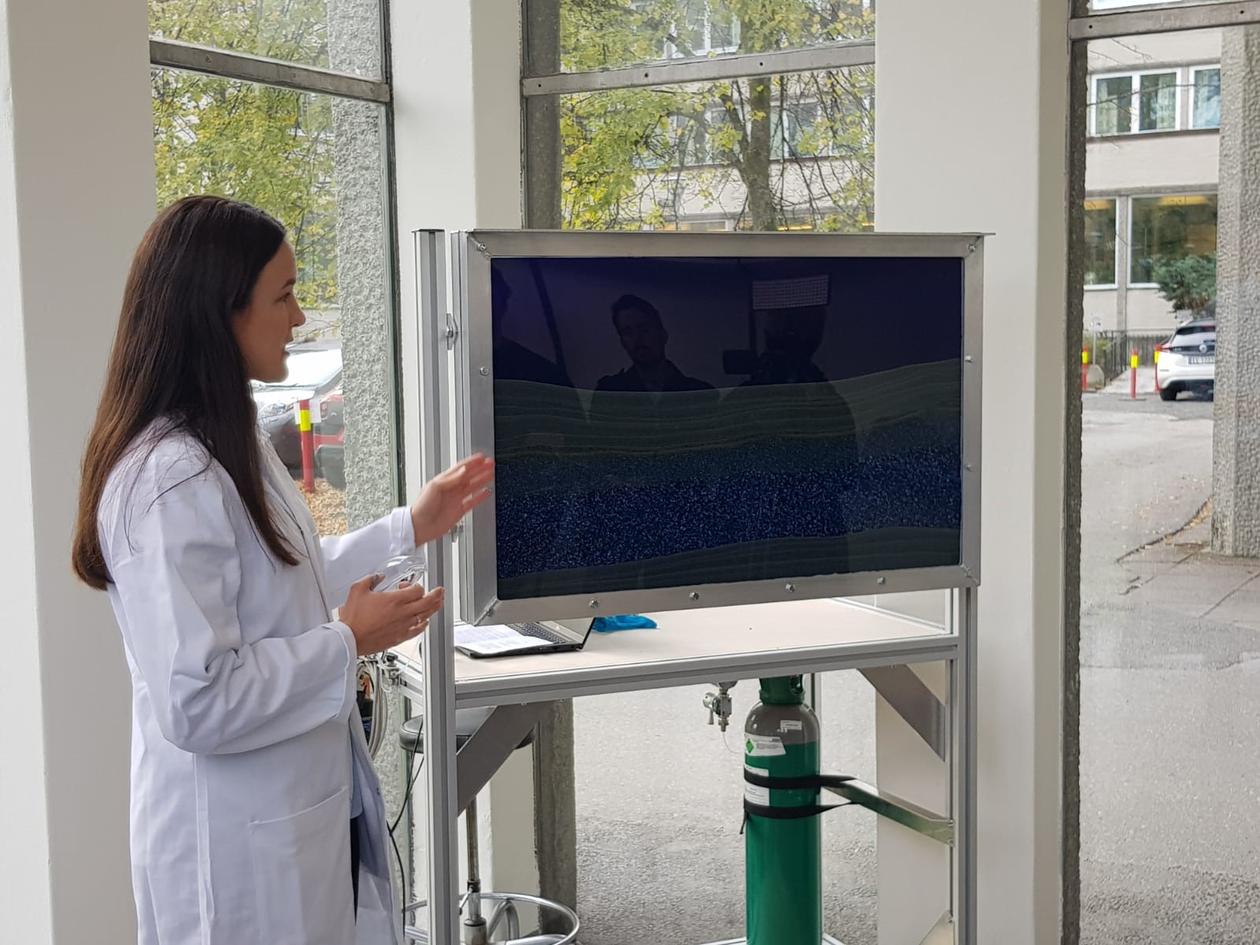The world's first full-scale carbon capture and storage project visits IFT
Through the Northern Lights project, Equinor and partners will capture CO2 from cement production in eastern Norway, transport it by ship to Øygarden and store the greenhouse gas permanently several kilometers below the seabed in the North Sea. Northern Lights is part of the government's Longship project, launched as the largest ever climate project in Norwegian industry.
Kabonlagring
Main content
During his visit to IFT on 19 October 2020, project director Sverre Overå and digitization director Thorbjørn Folgerø of Equinor announced that the project will share data from seismic surveys, drilling of the first injection well and initial analysis.
“This is valuable data for our further research work on CO2 storage”, says Prof. Martin Fernø, who, together with Phd candidate Malin Haugen in the research group Reservoir Physics at IFT, informed the press on the group’s research in connection with the announcement from Equinor. IFT and other interested parties will now have access to unique data in the initial phase of a gigantic, national CO2 storage project, which according to the plan will pump CO2 into the formations under the seabed during 2024.
“We must reduce our climate emissions, and carbon capture and storage are necessary to meet our climate goals. The Northern Lights project, access to unique data and the expertise in the area will make a positive contribution to our research and education in the storage of the greenhouse gas CO2,” concludes Martin Fernø.
Read more on the project here.


